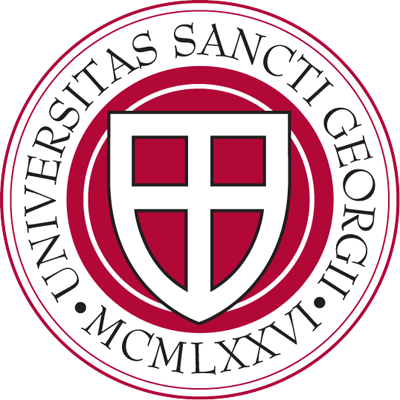Interview with St. Georges University School of Medicine

St. George’s University School of Medicine
By: Charyse Magdangal
1. What is your name, your professional title, and your relationship to the university?
My name is Joe Franza. I am the Assistant Director of Admission for the western region of the US for St. George’s.
2. What are some essential problems in the healthcare field and how is your school working to change that?
<!--more-->
St. George’s does a lot regarding diversity and multicultural society. We really embrace that global medicine. We think that diversity is something that is becoming more and more part of every day medicine, and we try to embrace that not only in what we teach but also in our student body. Our student body, between all of our students, represents 96 countries. Between our faculty, our staff, and our students, we cover over 140 countries.
<!--more-->
3. What is your mission statement?
Our mission statement is focused on primary care. We are more focused on internal medicine and things of that sort. We are focused on spots of need. With the way the economy is running and getting healthcare, we want to help those students. We want to enable them to work with those in need.
4. What is a brief description of the application process?
Basically, we have our enrollment advisors who assist in the process. They ensure any questions that are needed prior to applying are answered, which is one of my roles. After that we have our admission counselors who take the application and any documents that are missing- they will take you through that process. For example, if your UGA transcript is missing, they would email you or give you a call. After your application is complete, they will give it to the committee on admission, who will review the application to determine if you will be granted an interview. From there, within a few weeks, you will get a decision on how the interview went.
We do have an option for the AMCAAS. It’s not through AMCAAS, because we are a Caribbean school. However, we do accept a copy of the AMCAAS application. Then you just have to complete the supplemental application.
5. Are there any special programs for which this medical school is noted?
We have a medical program that is state of the art. We have a veterinary program. We have a Masters in Public Health which has the CEPH accreditation- one of the few schools outside of the US to have that accreditation. We have a Masters in Business.
We have a dual degree MD/MPH and MD/MBA.
6. What sets your curriculum apart from other Medical schools?
The main thing in our school is our student support. We have a large student support down there. Because it’s so far from home, we want to make sure students are comfortable. Each step of the way, we help to make sure the students are comfortable with the curriculum and everything that is happening. We give a lot of one-on-one attention and a lot of assistance throughout the program to ensure that anything that they need is their at their fingertips. From sending them presentations before classes to videotaping the lectures to make sure they can go over it. We offer them tutors, study groups, and basically put together anything to ensure that their learning experience is to the max.
7. What are the opportunities for research?
We have one main research building, and all of our research is done through there.
8. How are students evaluated academically?
We don’t do pass/fail; we do grading system. The reason why we do that is because we feel like it’s the best way to continue to evaluate our students as the progression is going. If students are just passing, we don’t know how well they are excelling. The number grading is so that we can make sure we know how well the students are doing at that time.
9. How do you work to help place students into clinical rotations in the US?
We have over 70 clinical affiliate hospitals throughout the US, the UK, and Canada. A bunch of them throughout the US. We guarantee everyone gets rotation spots. The students apply for whichever ones they prefer out of our options for the rotations.
10. What are the current tuition and fees?
It’s very similar to out of state tuition. It does require a little bit more in regards to loans, but we do have the federal funding to ensure everything is in place. You can just fill out a FAFSA. It’s all on our website and how it breaks down.
11. What does a well-rounded student mean to you?
We look for the most well-rounded person we can possibly find. We try to value the whole application. We try to do a holistic view. We’re not just looking at the GPA and the MCAT. We’re looking at the intangibles that makes that person dedicated and really wants to be a doctor. We look at letters of recommendation. All of their work and volunteer experience is important to us. We put a lot of value on our interview process, because we want to get the best individual.
12. Is there any special advice you would give to someone applying to your school?
Something that is important in general for us is international experience. If you have that, you have a leg up in making that big jump from moving to the US to the Caribbean. You have to mentally prepared because it’s kind of secluded- it’s a great place to study with all the medical students, but it’s still different lifestyle wise from what you’re used to.
The main thing I would say is making sure this is for you. You know- dedication, commitment- it takes a lot of commitment to be a doctor. You have to be dedicated to the profession.

